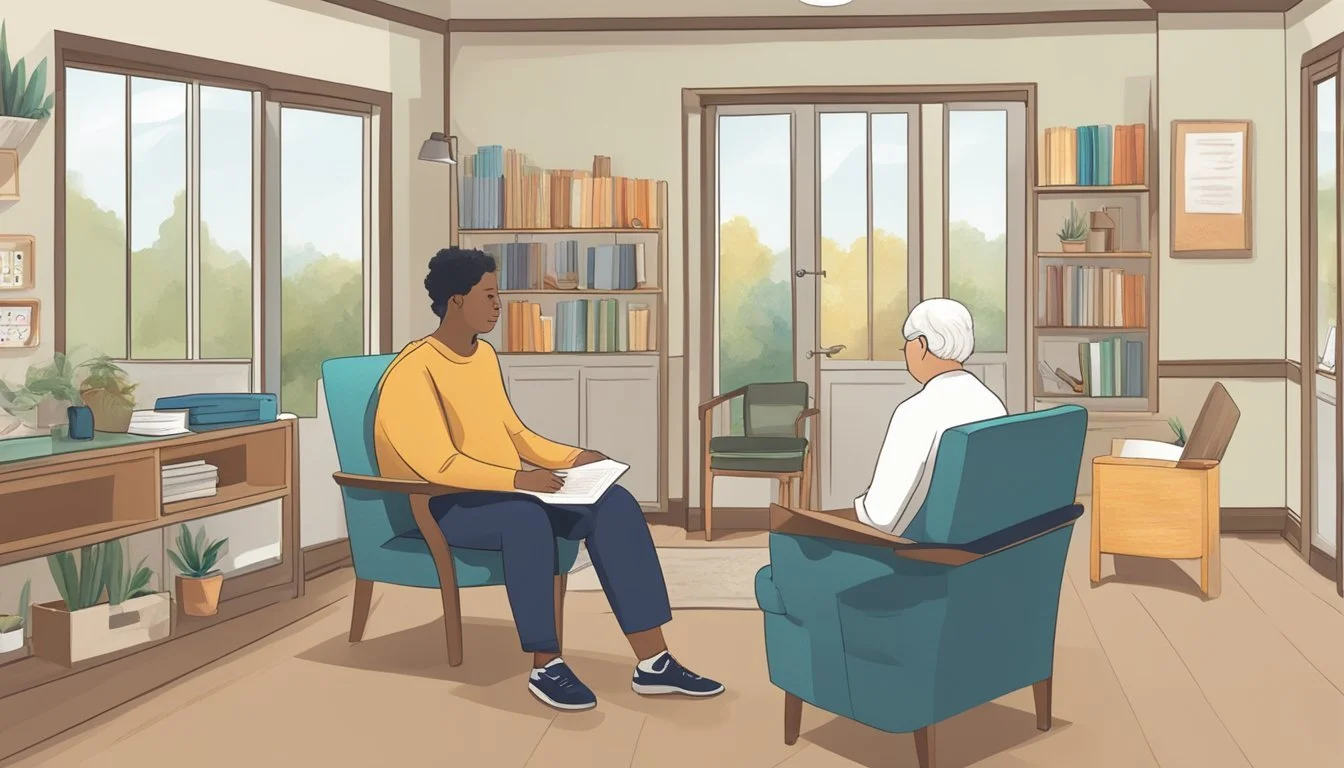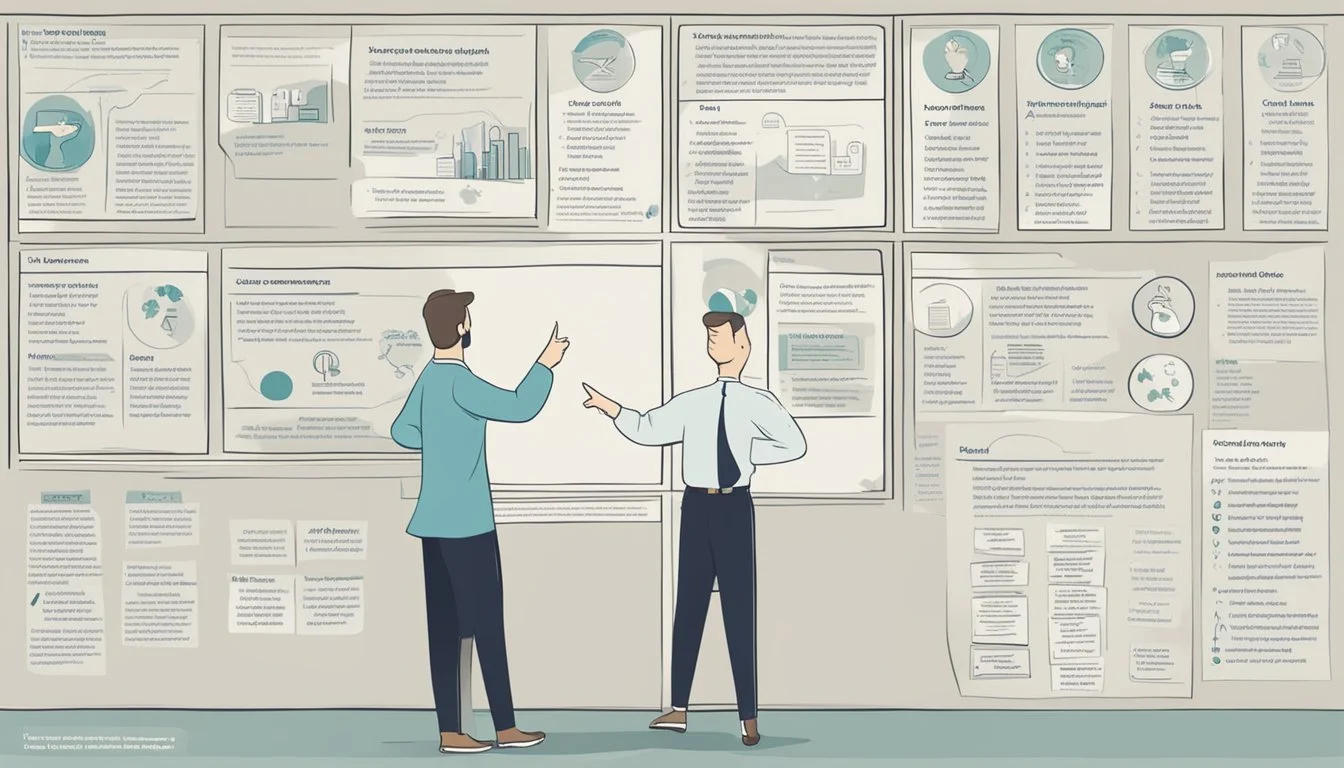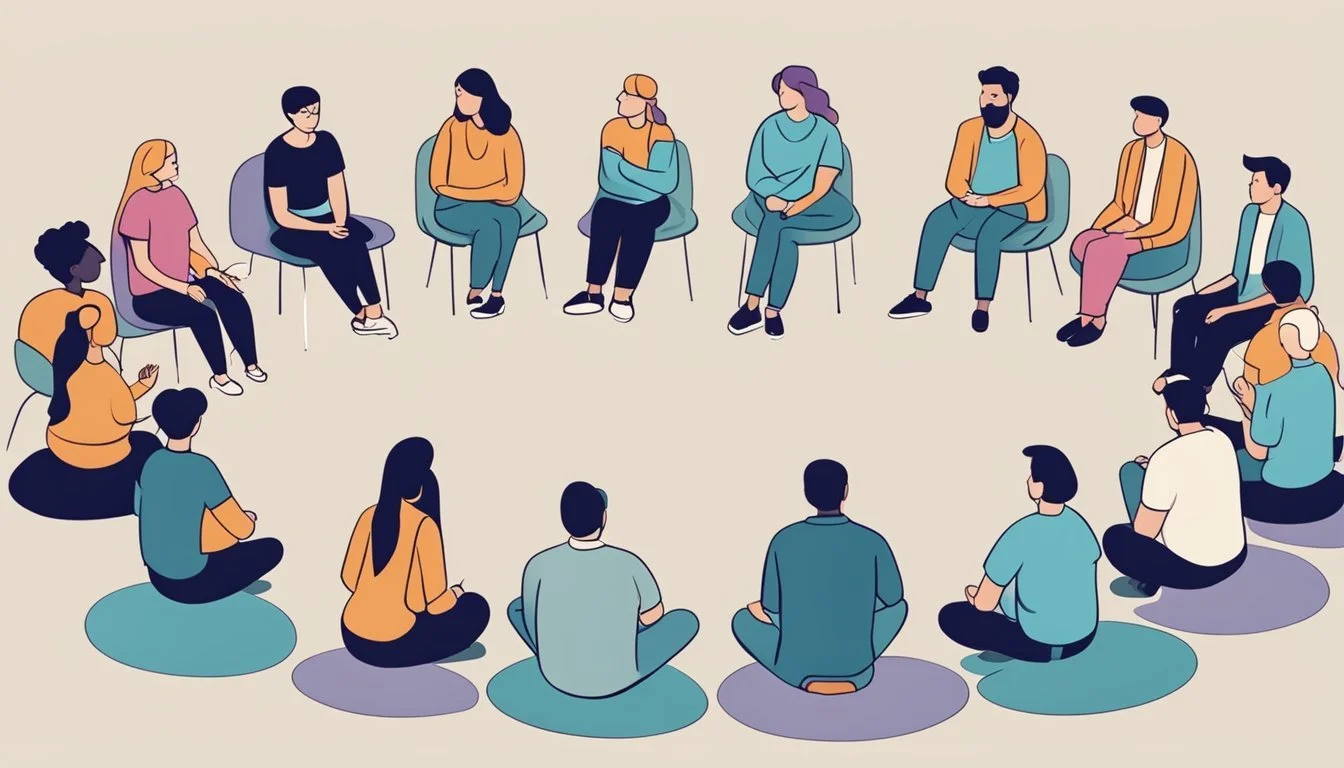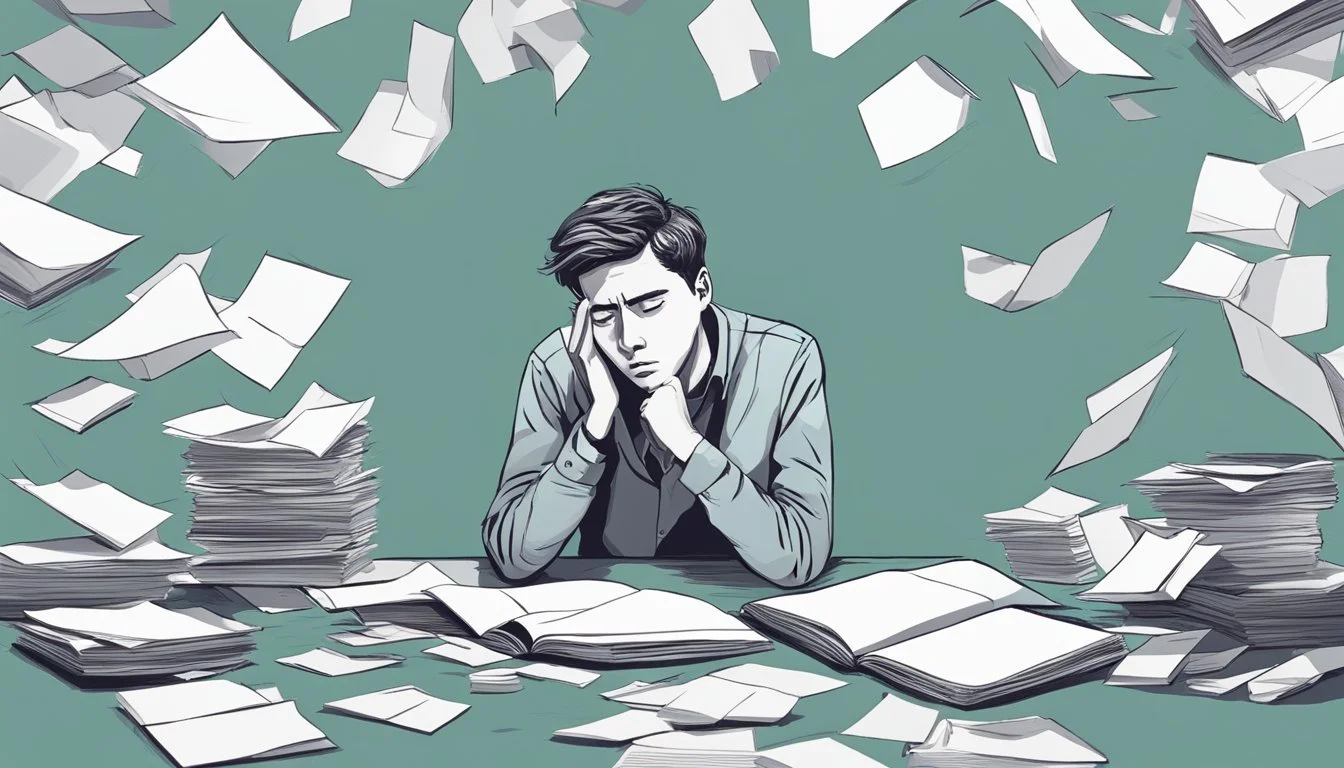11 Tips for Coping with PTSD-Related Aphasia
Effective Strategies for Better Communication
Dealing with PTSD-related aphasia presents a unique set of challenges for both individuals and their loved ones. Effective communication can significantly enhance the recovery journey, aiding in emotional and psychological well-being.
Understanding practical strategies for coping with this condition can empower individuals to navigate daily interactions more effectively. These tips aim to offer actionable advice, ensuring that everyone involved can foster a supportive and communicative environment.
1) Practice Mindfulness Exercises
Mindfulness exercises can significantly help manage PTSD-related aphasia. These activities promote relaxation and improve attention, which may aid in reducing symptoms.
One effective technique is the Body Scan exercise. Individuals focus attention on different parts of the body, encouraging awareness and reducing tension.
Breathing exercises are another vital practice. By maintaining focus on each breath, individuals can calm their minds and improve concentration.
Incorporating mindful seeing helps too. Observing surroundings without judgment can ground someone in the present moment, minimizing stress responses.
Mindful listening can be beneficial as well. Paying close attention to environmental sounds helps in slowing down thought processes, reducing cognitive overload.
Starting with just a few minutes each day and gradually increasing the duration can make these exercises more manageable. Encourage patience with the process, as consistency is key for long-term benefits.
2) Engage in Speech Therapy
Speech therapy plays a crucial role in helping individuals with PTSD-related aphasia. A licensed speech-language pathologist (SLP) can assess specific communication needs and tailor therapy to address those challenges.
Therapy sessions typically include exercises to improve language skills, such as naming objects, forming sentences, and understanding spoken and written language.
Participating in speech therapy can also help individuals regain confidence in their communication abilities. Reinforcing successful communication attempts and celebrating small victories can boost morale.
By engaging in consistent therapy, patients can develop strategies to overcome communication barriers. This might involve using alternative methods like gestures, drawings, or writing to complement verbal communication.
With dedication to therapy, individuals with aphasia can make notable progress in their ability to communicate effectively.
3) Use Communication Boards
Communication boards can be a valuable tool for those coping with PTSD-related aphasia. These boards often feature words, symbols, or pictures that represent common phrases or concepts. They help bridge the gap when speaking becomes challenging, making it easier to convey basic needs and emotions.
There are various types of communication boards available. Some are focused on everyday activities, while others might be more specialized, such as those with medical vocabulary. For instance, Lingraphica communication boards include options tailored for hospital settings.
The simplicity and ease of use make communication boards an attractive option. They don't require technical skills and can be readily available in different settings, from home to clinical environments. This ensures that individuals always have a means to express themselves.
Using communication boards can significantly reduce frustration. By providing a clear and straightforward way to communicate, they foster a sense of independence and confidence. Family members and caregivers can also benefit, as it simplifies the interaction process and helps in understanding the needs of their loved ones.
For those interested in exploring these tools further, many organizations offer free resources. For example, the National Aphasia Association provides various tips and tools to support communication.
4) Incorporate Art Therapy
Art therapy can be an effective method for managing PTSD-related aphasia. By engaging in activities like drawing, painting, or sculpture, individuals can express thoughts and emotions that might be difficult to articulate verbally.
Art therapy taps into the creative aspects of the brain, helping to process trauma in a non-verbal way. This approach can be particularly helpful when verbal communication is impaired.
Different forms of art provide various avenues for self-expression. For those struggling with finding words, the act of creating can become a therapeutic outlet.
Research indicates that art therapy offers a safe space to explore emotions. This process can foster a sense of control and understanding over one's experiences.
Art therapy is also flexible and can be tailored to individual preferences, ensuring a personalized approach to healing. Some might prefer painting, while others may find solace in music or dance.
By incorporating art therapy, individuals with PTSD-related aphasia can find alternative ways to communicate, promoting emotional healing and greater well-being.
5) Maintain a Daily Journal
Keeping a daily journal can be beneficial for individuals coping with PTSD-related aphasia. Journaling allows them to express their thoughts and feelings in a structured manner.
Writing can help reduce anxiety and tension by providing an outlet for internal struggles. This practice can help people make sense of their daily experiences and emotions.
Studies indicate that expressive writing helps manage PTSD symptoms. By putting words to their feelings, individuals may experience a sense of relief and clarity.
Patients can write about their day, their progress, or any specific challenges they face. Some may find it helpful to use specific PTSD journaling prompts for guidance.
Noting positive experiences and accomplishments can reinforce a sense of achievement and progress. It’s also possible to track emotional patterns and triggers through regular journaling.
Whether through brief entries or more extended writings, maintaining a daily journal fosters self-reflection and healing. It can be a quiet time of day dedicated to personal growth and mental health.
Encouraging this habit can also help in therapy sessions, where the journal can serve as a reference point for discussions and interventions.
6) Join Support Groups
Joining support groups can offer significant emotional and social benefits for those dealing with PTSD-related aphasia. These groups provide a sense of community and understanding that can be difficult to find elsewhere.
Support groups can be found both in-person and online. Many organizations offer resources to locate one nearby or join remote sessions. For example, the Aphasia Community provides a comprehensive support group finder.
Engaging with others who share similar experiences can help reduce feelings of isolation. In these groups, members can exchange tips and strategies for coping with communication challenges.
Some support groups also include activities designed to enhance communication skills. Activities such as creating photo albums or inviting aphasia experts to share their knowledge can be beneficial, as suggested in this list of communication activities.
Caregivers can also find specialized groups that cater to their unique needs. Resources like the Aphasia Caregiver Support Group Finder offer connections to groups focused on caregiver support. This ensures that both those with aphasia and their caregivers receive the support they need.
Joining a support group can be an essential step in managing PTSD-related aphasia, providing both emotional support and practical advice.
7) Develop a Structured Routine
Establishing a structured daily routine can be incredibly beneficial for individuals coping with PTSD-related aphasia. Predictability and consistency provide comfort and help reduce stress, which can often exacerbate symptoms.
Regular sleep patterns and meal times are essential components of this routine. Maintaining these regularities helps in creating a stable environment, fostering a greater sense of control and safety.
Incorporate consistent daily activities that offer both mental and physical engagement. This can include light exercise, mindfulness practices, or hobbies that bring joy and relaxation. These activities contribute to mental well-being and can alleviate some of the emotional burden associated with PTSD and aphasia.
A planned routine also helps in identifying and managing triggers. Knowing what to expect each day can reduce anxiety and provide opportunities for proactive coping strategies. It also ensures time is allocated for recovery and self-care.
For more insights on establishing a structured routine, visit Coping with PTSD: Strategies for Managing Symptoms.
8) Utilize Mobile Apps for Aphasia
Mobile apps can be a valuable tool in managing PTSD-related aphasia. They offer structured exercises and interactive features that make speech therapy accessible.
Tactus Therapy offers a range of speech therapy apps designed for adults with aphasia. These apps are developed by a speech-language pathologist and can be used both in clinic settings and at home.
Another option is Lingraphica's SmallTalk apps, which provide pictures and vocabulary organized by themes. These apps speak words or phrases out loud when an image is touched, making them helpful for daily conversations and medical interactions.
For those looking for free resources, Voices of Hope for Aphasia offers a downloadable guide that lists various free apps and programs. This guide includes descriptions, platform availability, and current prices.
Integrating these apps into daily routines can help individuals practice speech and stay connected with others. Whether used for therapeutic exercises or casual communication, they can provide consistent support in a convenient format.
9) Practice Breathing Techniques
Breathing techniques can be effective in managing PTSD-related aphasia. Controlled breathing, such as diaphragmatic and box breathing, activates the parasympathetic nervous system, which triggers the "rest and digest" response.
One simple method involves inhaling slowly through the nose for a count of five, holding for five seconds, and then exhaling through the mouth for a count of seven.
Practicing breathing exercises daily can help counteract the constant activation of the fight-or-flight response. This can make it easier to manage symptoms associated with PTSD.
Mindfulness breathing techniques also enhance present-moment awareness. By focusing on breathing, individuals can center their thoughts and reduce anxiety levels. Including phrases like "C-a-a-a-a-l-m" during exhalation adds a calming effect.
Regular practice of these techniques can lead to long-term improvements in managing PTSD symptoms. It’s a practical approach that offers immediate calming benefits and contributes to ongoing emotional regulation. Read more about breathing techniques in PTSD management at Wellness Drip Holyoke and Psychotherapy Academy.
10) Explore Music Therapy
Music therapy can be a powerful tool for those dealing with PTSD-related aphasia. This type of therapy uses music to address the physical, emotional, cognitive, and social needs of individuals. It can significantly aid in the process of reclaiming language skills by engaging different parts of the brain that are involved in speech production and comprehension.
Benefits include improved mood and emotional regulation, which can create a more conducive environment for communication. Participating in music therapy sessions can help reduce anxiety and stress, common issues for individuals with PTSD. This reduction in stress can help lessen the severity of aphasia symptoms.
Some studies indicate that discussing and analyzing music provides a safe space to explore themes related to trauma. This reflective process can be less daunting than standard talk therapy, providing a unique outlet for expression.
Collaborating with a certified music therapist ensures a tailored approach, making it suitable for the individual's specific needs. For those looking for a comprehensive treatment plan, combining music therapy with other evidence-based therapies may enhance the overall effectiveness.
For more information on how music therapy can assist in recovery from PTSD, visit Incadence Music Therapy or PMC Articles. Consider reaching out to specialists who can guide you through this therapeutic journey.
11) Engage in Physical Exercise
Engaging in physical exercise can be beneficial for people with PTSD-related aphasia. Regular physical activity helps improve mood and reduce stress.
Aerobic exercises, such as jogging or cycling, enhance cardiorespiratory fitness. This can positively impact PTSD symptoms, contributing to overall well-being.
Activities like yoga promote mindfulness and help individuals focus on the present. This can reduce anxiety and improve cognitive functions, including speech.
Exercise also serves as a healthy outlet for pent-up emotions. It provides a constructive way to channel frustrations and reduce feelings of anger.
For those experiencing insomnia, incorporating physical exercise into daily routines can improve sleep quality. Better sleep can lead to enhanced cognitive functions and communication skills.
Participating in group exercises can foster social interaction and support. This helps reduce feelings of isolation and promotes a sense of community.
Combining various types of physical activity, from rigorous workouts to gentle stretching, can offer comprehensive benefits. Different exercises target different symptoms and improve overall physical and mental health.
Exercise routines should be tailored to individual capabilities and preferences. Consulting healthcare providers or fitness professionals can help create a suitable plan.
Understanding PTSD-Related Aphasia
PTSD-related aphasia is a condition that can arise from trauma, impacting an individual's ability to communicate. It shares characteristics with other forms of aphasia but is specifically linked to post-traumatic stress disorder.
What Is PTSD-Related Aphasia?
PTSD-related aphasia occurs when PTSD impairs language functions. This condition is defined by difficulties in speaking, understanding, reading, or writing that result from damage to the brain regions responsible for language.
Unlike other forms of aphasia typically caused by physical brain injuries such as stroke, PTSD-related aphasia stems from psychological trauma. The impact of traumatic events may indirectly affect brain function, leading to language disruption.
Symptoms and Signs
Symptoms of PTSD-related aphasia can be varied. Individuals may struggle with word-finding, constructing sentences, or comprehending spoken or written language. Speech may become slow, broken, or difficult to follow.
Common signs include:
Difficulty recalling names or common objects.
Trouble following conversations.
Frequent pauses or hesitations in speech.
Mispronouncing words or substituting incorrect words.
These symptoms may fluctuate, becoming more pronounced during periods of heightened stress or anxiety.
Causes and Triggers
The primary cause of PTSD-related aphasia is severe psychological trauma. This can include events such as military combat, physical assault, or witnessing life-threatening situations.
Trauma-related changes in the brain, particularly in areas associated with language processing, contribute to the condition. Stress hormones and neurotransmitters may also play a role.
Common triggers include loud noises, reminders of the traumatic event, or stressful environments. These triggers can exacerbate symptoms by increasing anxiety and affecting cognitive functions, including language.
Understanding these aspects can help in recognizing and addressing PTSD-related aphasia, providing better support for those affected. For additional insights, visit PTSD and Aphasia Resources.
Therapeutic Approaches
Various therapeutic approaches can help individuals coping with PTSD-related aphasia. These treatments focus on improving speech and language abilities, restructuring cognitive patterns, and addressing trauma-related issues.
Speech Therapy
Speech therapy is a primary approach for managing aphasia. Speech-language pathologists work with patients to improve communication abilities through tailored exercises.
Techniques include articulation practice, word-finding exercises, and comprehension tasks.
Some therapies use technology, like speech-generating devices, to facilitate communication. Consistent practice and a supportive environment are crucial for progress. Family involvement can also enhance outcomes, as therapists often train family members in communication strategies that can be used at home.
Cognitive Behavioral Therapy (CBT)
Cognitive Behavioral Therapy (CBT) is effective in treating PTSD symptoms alongside aphasia. CBT focuses on identifying and changing negative thought patterns that contribute to emotional distress.
Therapists help patients confront traumatic memories and develop healthier coping mechanisms. This structured approach can reduce anxiety, improve mood, and enhance overall well-being. Regular sessions and home assignments encourage patients to apply these strategies consistently.
CBT for PTSD-related aphasia might include visual aids or simplified language instructions to accommodate communication challenges.
Trauma-Focused Therapy
Trauma-Focused Therapy addresses the core trauma that led to PTSD. Modalities like Eye Movement Desensitization and Reprocessing (EMDR) can be beneficial.
In EMDR, therapists guide patients through trauma recall while engaging in bilateral stimulation, which helps reprocess traumatic memories. This method can reduce the emotional intensity of those memories.
Another approach is Prolonged Exposure Therapy, where patients gradually face trauma-related stimuli in a controlled setting, helping to reduce avoidance behaviors. These therapies are adaptable to the needs of individuals with aphasia, often incorporating non-verbal techniques and augmentative communication devices.
Support Systems
Support systems are crucial for individuals coping with PTSD-related aphasia. They involve the active participation of family, friends, and peer support groups, each playing an important role in the recovery journey.
Family and Friends
Family and friends provide emotional and practical support to those dealing with PTSD-related aphasia. Maintaining a calm and patient environment helps significantly. It is essential to keep communication simple and clear, emphasizing key words and giving the person time to respond. Engaging with drawings, gestures, or facial expressions can aid understanding, as suggested by the National Aphasia Association.
Reducing background noises and visual distractions, such as TV or radio, creates a more focused communication space. Ensuring you have their attention before starting a conversation is also crucial. Treating the person with maturity and respect fosters a more positive and supportive atmosphere, according to the Mayo Clinic Health System.
Support Groups
Joining support groups provides individuals with a community of peers who understand their experiences. These groups offer a space for sharing challenges, strategies, and emotional support. They can be particularly beneficial for learning new communication techniques and coping strategies from others who have experienced similar situations.
Support groups also allow family members and friends to gain insights into how they can better assist their loved one. Organizations like the Aphasia Institute offer structured programs that teach communication partners how to support effectively, focusing on improving conversational abilities and understanding. Participating in these groups can make a significant difference in the overall well-being and recovery of those affected by PTSD-related aphasia.















